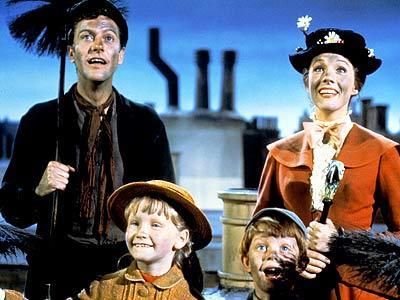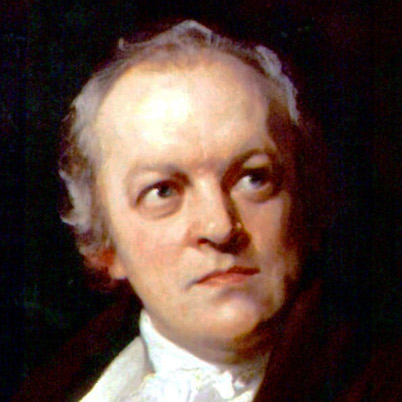About the Author:
William Wordsworth was born in 7th April 1770 in Cockermouth, Cumberland, which is a part of the scenic region in north-western England known as the Lake District. He was the second of the five children of John Wordsworth and Ann Cookson. He was very close to his sister, Dorothy Wordsworth, who was born the year after. His education was mostly taken care of by his mother, but after her death 1778, Wordsworth’s father sent him to Hawkshead Grammar School in Lancashire (now in Cumbria) and Dorothy was sent to Yorkshire. For nine years the siblings did not meet. In 1787 he went to St. John’s College, Cambridge to pursue his Bachelor’s degree. He received his degree in 1791, and after that he extensively toured various places in England and France.
Wordsworth’s contribution to British literature is very crucial. His nominal work The Prelude is considered to be a masterpiece in the history of Romanticism. It was his and Coleridge’s collaborative work in the form of The Lyrical Ballads in 1798, which is believed to have given the Romantic Movement its stronghold. Wordsworth is considered as a nature’s poet, the prevalence of Nature is present throughout his poems. For him Nature was a supreme power, which had the potential to provide one with peace and solace when he/she is in distress. Wordsworth also believed in a Pantheistic viewpoint, where there is no difference between Nature and Man. They are a united whole as both are the creation of God. Hence, he emphasized on the “marriage between Mind and Nature”; where Mind acts as the supreme male and Nature, the supreme female. Emotions also play a very important role in Wordsworth’s poetry. He very aptly considers that poetry should be “a powerful overflow of emotions recollected in tranquility”. His poems are intensely personal and are generally presented as recollections of the mind.
About the Poem:
The poem “Strange Fits of Passion Have I Known”, belongs to the Lucy poems series (a collection of 5 poems), which was included in The Lyrical Ballads. The poem is a personal recollection of emotions felt by the speaker while he travelling to the place where Lucy lived. The real identity of Lucy is ambiguous, as Wordsworth never openly talked about the theme of these poems. But many speculated that Lucy could be a representation of his sister, Dorothy, whom he loved very much. While others considered her to be mysterious woman of supreme beauty and innocence, who died a premature death. The tone of the poem is melancholic; it is a lamentation involving the thought of Lucy’s death which occurs suddenly to the poet.
Summary and interpretation:
The poem follows the form of a ballad, with the rhyme scheme of abab cdcd efef…. In the first stanza the poet tells the readers that he has gone through “strange fits of passion”, which he could tell only to a lover’s ear:
Strange fits of passion have I known:
And I will dare to tell,
But in the Lover’s ear alone,
What once to me befell.
The second stanza is followed by a brief description of her beauty and informs the readers about the journey he has undertaken:
When she I loved looked every day
Fresh as a rose in June,
I to her cottage bent my way,
Beneath an evening-moon.
The image of the moon lends to the poem a certain mysterious feeling, as well as sense of foreboding which will be later intensified at the end of the poem. The moon and the movement of the horse build up the ambience of the poem:
Upon the moon I fixed my eye,
All over the wide lea;
With quickening pace my horse drew nigh
Those paths so dear to me.
In the following stanza the destination of the speaker’s journey approaches nearer, so does the moon which appears to be touching down upon Lucy’s cot:
And now we reached the orchard-plot;
And, as we climbed the hill,
The sinking moon to Lucy’s cot
Came near, and nearer still.
It is only in this stanza that Lucy is introduced to us, but just as a name. The speaker did not give any description about Lucy, which could imply that Lucy is totally a personal domain of the speaker.
As we progress, we realise that the sense of mystery is being built up. Just like a story we wait with batted breath that what is going to happen next. We find the poet steadily approaching Lucy’s cottage, and at the same time the moon appears to reaching her faster than him:
In one of those sweet dreams I slept,
Kind Nature’s gentlest boon!
And all the while my eyes I kept
On the descending moon.
A competition is going on between the speaker and the moon. It due to this reason that even though he dreams of being near to Lucy a sense of foreboding makes him constantly watch the moon.
The next stanza acts as a climax to the story being told:
My horse moved on; hoof after hoof
He raised, and never stopped:
When down behind the cottage roof,
At once, the bright moon dropped.
The speaker has almost reached his destination. The horse has taken speed and would have reached very soon, but the moon dropped suddenly behind Lucy’s cottage. The effect of this sudden disappearance of the moon is climactic to the theme of the poem as we would see in the next stanza where the speaker’s mind is filled with “wayward” thoughts.
The final stanza could be taken as a continuation of the first stanza. The “strange fits of passion” he had are being told here after the moon suddenly dropped:
What fond and wayward thoughts will slide
Into a Lover’s head!
“O mercy!” to myself I cried,
“If Lucy should be dead!”
The poem hence is a death fantasy told in the form of a story. “The strange fits of passion” he talks about is actually the fear of Lucy’s death he felt when the moon suddenly disappeared. It could be assumed that somehow the moon at the end of the poem has ceased to be competitor and had become a signifier to Lucy herself.
Wordsworth uses the form of the ballad very appropriately in the poem, giving it a very rhythmic attribution. Along with it, the use of the simple words makes it easier for the readers to understand the theme of the poem. The poem also is a recollection, it tells about what thoughts went through his mind at a moment in the past. The fluidity of the poem renders it very readable and soothing to the audience.
P.s: Any views, opinions and questions on behalf of the readers are welcome.
Some online learning platforms provide certifications, while others are designed to simply grow your skills in your personal and professional life. Including Masterclass and Coursera, here are our recommendations for the best online learning platforms you can sign up for today.
The 7 Best Online Learning Platforms of 2022
- Best Overall: Coursera
- Best for Niche Topics: Udemy
- Best for Creative Fields: Skillshare
- Best for Celebrity Lessons: MasterClass
- Best for STEM: EdX
- Best for Career Building: Udacity
- Best for Data Learning: Pluralsight













